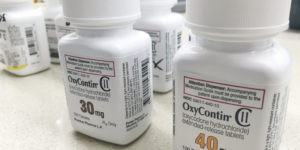Study: Depression lowers COPD medication compliance
Depression can significantly lower medication compliance among those with chronic obstructive pulmonary disease (COPD), especially in the first six months after a COPD diagnosis, according to a new study published in the Annals of the Thoracic Society journal.
COPD and depression often go hand in hand, highlighting the importance of good mental health screening and treatment for both conditions, the study authors say. People with depression took their COPD medications less often and also refilled their prescriptions fewer times—medication adherence was just 57 percent at diagnosis of depression and dropped to 25 percent after six months, according to the Medicare claims data for the 31,000 beneficiaries included in the study.
"With a prevalence of 17 to 44 percent, depression remains one of the most common, yet least recognized and under-treated, co-morbidities among patients with COPD," says study co-author Linda Simoni-Wastila, PhD, BSPharm, MSPH, a professor in the Department of Pharmaceutical Health Services Research at the University of Maryland School of Pharmacy. "We were able to identify depression as a risk factor for not using COPD medications, finding that older adults with respiratory disease have a tendency to not fully utilize the medications prescribed for their disease. …[c]linicians who treat older adults newly diagnosed with COPD should be aware of the development of depression, especially during the first six months."

Pamela Tabar was editor-in-chief of I Advance Senior Care from 2013-2018. She has worked as a writer and editor for healthcare business media since 1998, including as News Editor of Healthcare Informatics. She has a master’s degree in journalism from Kent State University and a master’s degree in English from the University of York, England.
Related Articles
Topics: Clinical











